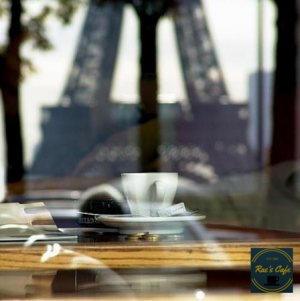When France is mentioned, one of the first images that comes to mind is that of the typical French café, with those small, round bistro tables. Such cafés have provided refuge and inspiration to countless coffee-loving writers, artists and intellectuals over the years, and have been captured in many films – making them an integral part of Parisian and French history and scenery. So, it’s no surprise that France has a solid cultural history when it comes to coffee. In fact, France was something of a pioneer in the coffee trade, with the French being some of the first to believe in the potential of these now beloved beans.
First Came the Beans…
1644: Pierre de La Roque, a merchant, introduced the first coffee beans to the French city of Marseille.
1707: Ship owners and traders in Saint-Malo, a port city in northwestern France, teamed up to buy the privilege of the coffee treaty in Arabia, for the princely sum of 7000 francs. As a result, two ships — “Le Curieux” and “Le Diligent” — sailed towards Moka (the famous city in Yemen from which the term “mocha” is derived). After several months in Yemen, a commercial treaty was signed.
1715: The Sultan of Yemen offered 60 coffee plants to Louis XIV. The first export would soon follow, with Captain Dufresne d’Arsel, who transported them to Bourbon Island near Madagascar. Now known as Réunion, the French island remains to this day a small producer of sustainable, fair trade coffee beans.
1719: A former French soldier by the name of Mourgues introduced a few coffee beans to the French settlement of Guiana in South America, producing the first abundant harvests in 1722.
1720: On a visit to metropolitan France, naval officer Sir Gabriel de Clieu discovered a new plant, the coffee tree, in the royal greenhouse. He was able to obtain two shrubs from the first doctor of the king, with the mission of implanting them in Martinique, the French-settled island in the Caribbean. The coffee plants thrived and spread quickly to nearby islands that had also been colonized by the French, including Guadeloupe and the Dominican Republic.
1727: Back in Guiana, where coffee was flourishing, a visiting Brazilian officer was gifted some coffee beans by the French governor’s wife — and these are thought to have been the start of Brazil’s now incredibly successful coffee growing industry.
1730: Coffee was also flourishing in Martinique, and some enterprising colonists decided to export the beans back to European nations, such as Ireland and Denmark, where it would continue to spread across Europe and beyond.
… then the Machines
1800: The Archbishop of, Paris Jean-Baptiste de Belloy, was an innovator when it came to coffee making, inventing the first percolation system and what is considered one of the first coffee makers. His system, dubbed “La Débelloire” or “Le Dubelloire”, consisted of two stacked containers separated by a compartment that contained the coffee. Boiling water was poured into the top container, the coffee beans were slowly infused into the water, then trickled into the bottom container.
1820: What we know today as the espresso machine first came from the mind of Frenchman Louis-Bernard Rabaut, who developed a machine that used steam to force hot water through finely ground coffee beans that had previously been roasted.
1825: The Cona-style siphon coffee maker first made an appearance, and featured two glass globes on top of one another, attached to a stand, using air pressure to extract the coffee. The patent for this contraption was registered by Jeanne Richard in 1838.
1855: The World’s Fair in Paris provided a showcase for an invention by Edouard Loysel de Santais — the hydrostatic percolator. This was a machine that produced large quantities of coffee using extraction pressure. This machine provided a starting point that would enable Italian inventors to create the commercial espresso machine almost a century later.
So you see, coffee owes a lot of its cultivation and preparation history and development to the French.
